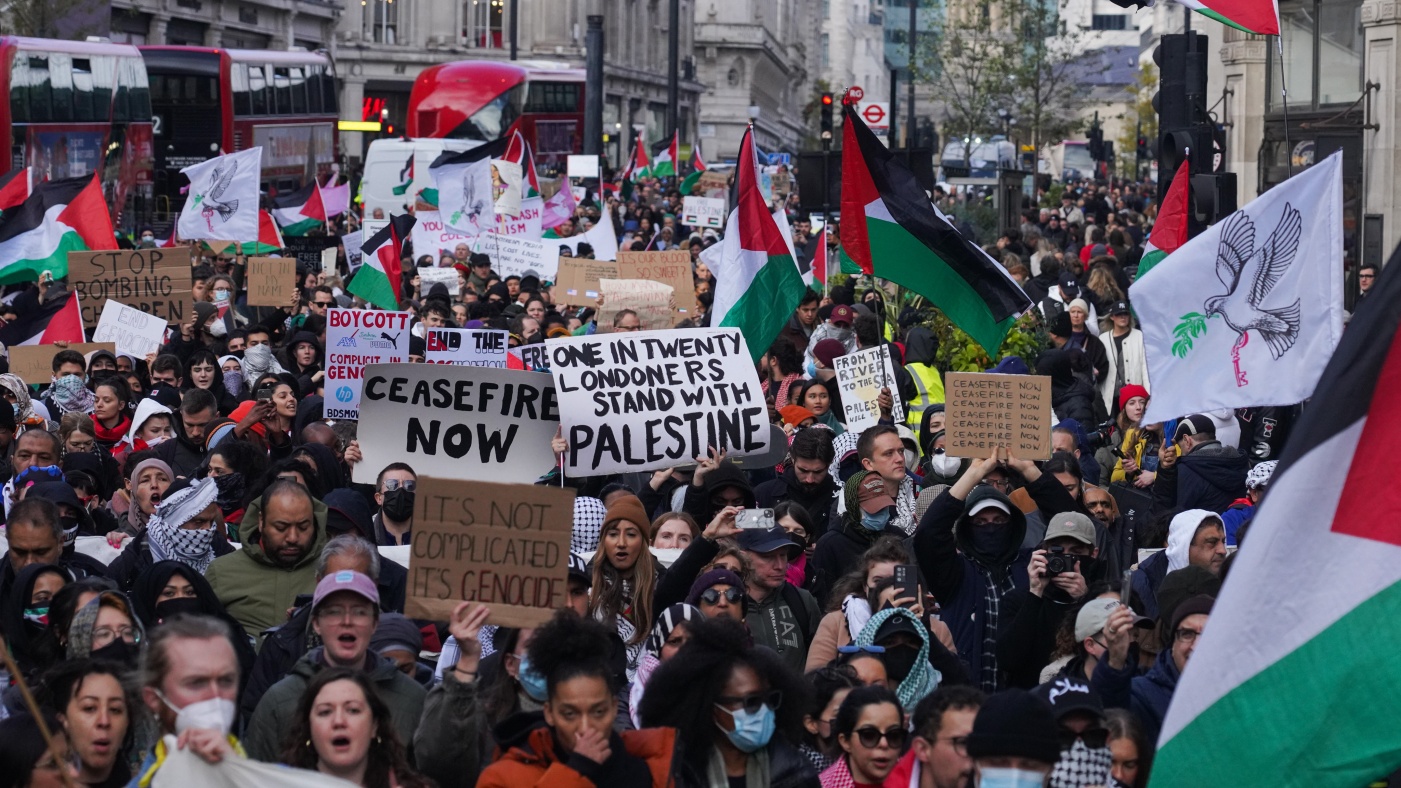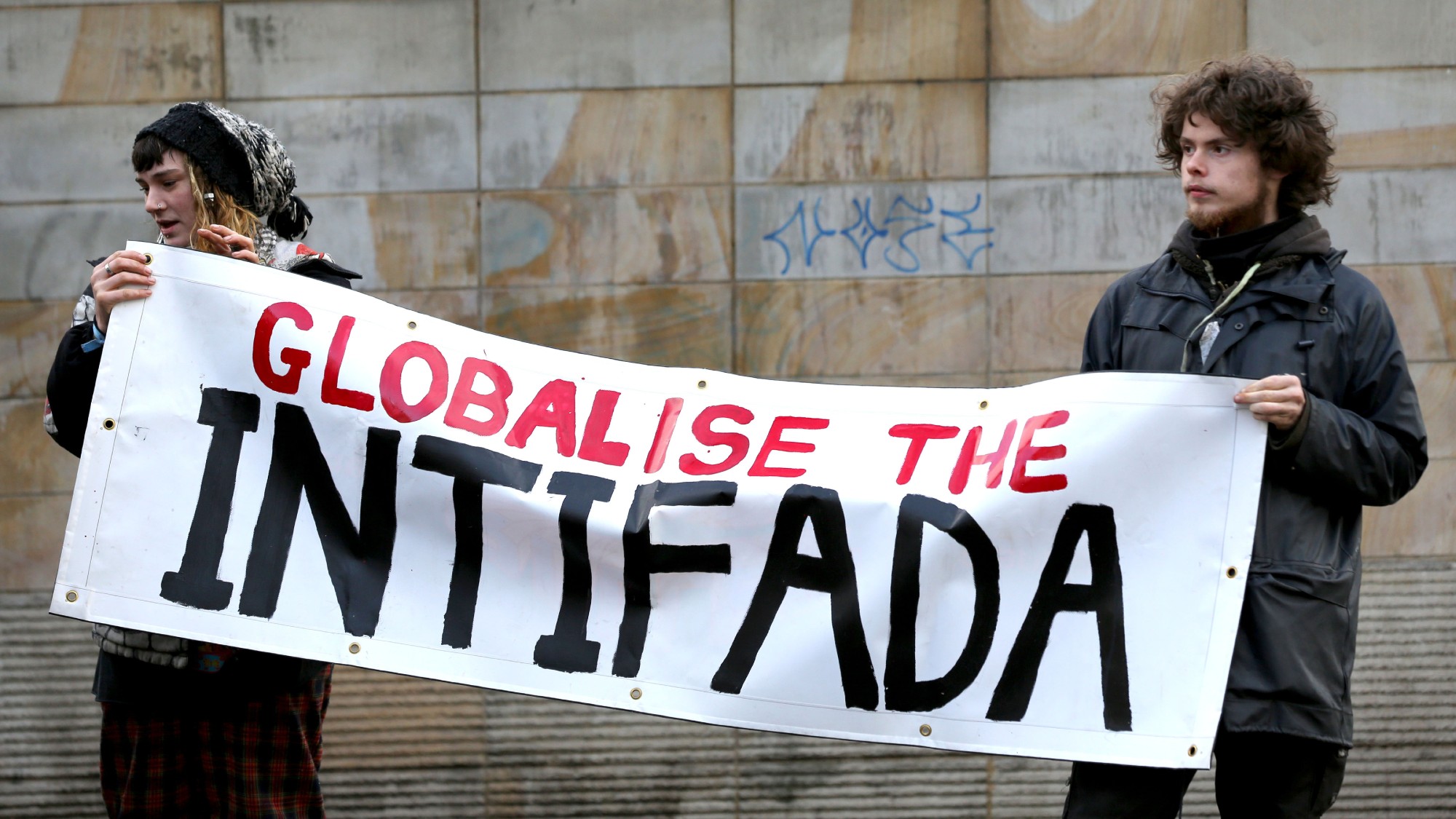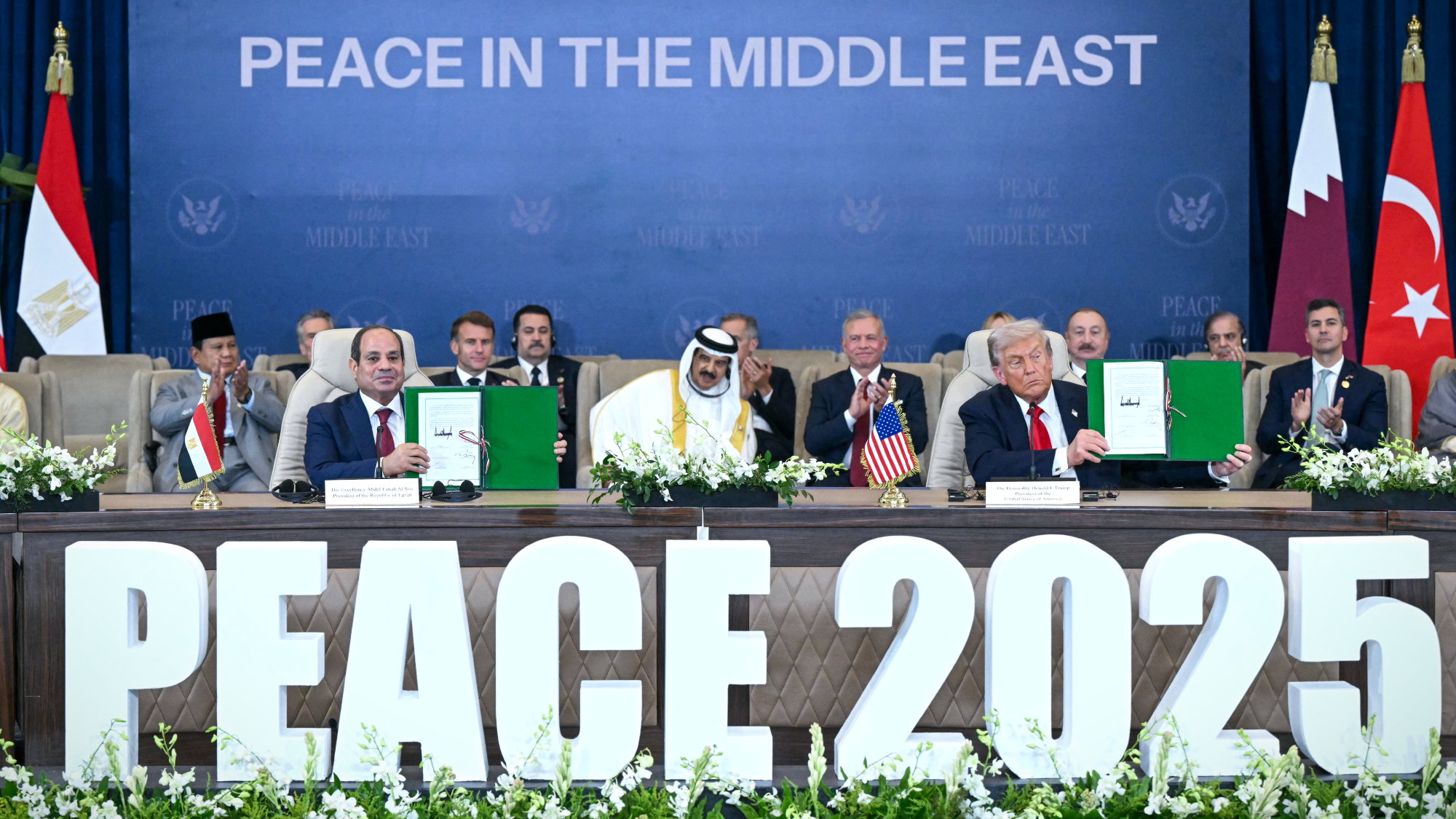Armistice Day: should pro-Palestine march be banned?
Rishi Sunak has called the planned protest "provocative and disrespectful"

A free daily email with the biggest news stories of the day – and the best features from TheWeek.com
You are now subscribed
Your newsletter sign-up was successful
An Armistice Day pro-Palestine demonstration is expected to go ahead after the Metropolitan Police chief said there were no grounds for a ban.
Every Saturday since the 7 October attack by Hamas that killed more than 1,400 Israelis, pro-Palestinian protesters have demonstrated in London and around the UK "to voice their opposition to the devastating impact of Israel's response on Palestinian civilians, thousands of whom have died", said Archie Bland in The Guardian.
Organisers have estimated that over half a million people have attended these rallies, while police have put the figure at 70,000. "But the most urgent disagreement has been over the nature of the demonstrations: whether they have been violent, intimidating, or driven by antisemitism."
The Week
Escape your echo chamber. Get the facts behind the news, plus analysis from multiple perspectives.

Sign up for The Week's Free Newsletters
From our morning news briefing to a weekly Good News Newsletter, get the best of The Week delivered directly to your inbox.
From our morning news briefing to a weekly Good News Newsletter, get the best of The Week delivered directly to your inbox.
'Marches are peaceful'
With a "huge spike" in reported antisemitic incidents since the attacks, some British Jews "have said that they find the marches intimidating." But this is "not a monolithic view" with left-wing Jewish groups among those on the protests, said The Guardian's Bland. And many who have joined the marches "say they have been peaceful, with a clear focus on the demand for protection for ordinary Palestinians".
Organisers of the march have also said that the timing of the protest is purely "coincidental", and have said "that a march calling for a ceasefire can hardly be said to run against the spirit of remembrance events".
They have also pointed out that the march will begin two hours after the 11am two-minute silence on Saturday, with the most significant remembrance events occurring on Sunday.
'Invoke draconian powers'
Rishi Sunak, however, has said the protest should not go ahead on Armistice Day, dubbing the march "provocative and disrespectful". Home Secretary Suella Braverman, meanwhile, has branded the protests "hate marches".
A free daily email with the biggest news stories of the day – and the best features from TheWeek.com
But Metropolitan Police Commissioner Mark Rowley has said such protests can only be banned in extreme circumstances – and in any case, the police could not stop from people gathering, only from marching.
"The laws created by Parliament are clear. There is no absolute power to ban protests, therefore there will be a protest this weekend," he said, adding: "The law provides no mechanism to ban a static gathering of people".
Sunak has said the Metropolitan Police will be held "accountable" for the marches going ahead, reported The Times.
Rowley's refusal to ban the march makes the Metropolitan Police look "weak", said the Daily Mail. "By failing to clamp down on criminal activity during the marches, senior officers have encouraged Islamist extremists to flex their muscles," the paper continued.
Now counter-demonstrations are being whipped up online by the EDL's "odious founder" Tommy Robinson. "The truth is, if the police had taken a much firmer line from the start against those preaching violence and racial hatred, this potentially explosive confrontation might have been averted," said the paper.
It will now be for ministers to decide "whether to invoke draconian powers to try to stop the protest from going ahead", said Politico, which would be "effectively by ruling that the police are failing to discharge their duties". And "needless to say", such a move would be "highly controversial".
Sorcha Bradley is a writer at The Week and a regular on “The Week Unwrapped” podcast. She worked at The Week magazine for a year and a half before taking up her current role with the digital team, where she mostly covers UK current affairs and politics. Before joining The Week, Sorcha worked at slow-news start-up Tortoise Media. She has also written for Sky News, The Sunday Times, the London Evening Standard and Grazia magazine, among other publications. She has a master’s in newspaper journalism from City, University of London, where she specialised in political journalism.
-
 James Van Der Beek obituary: fresh-faced Dawson’s Creek star
James Van Der Beek obituary: fresh-faced Dawson’s Creek starIn The Spotlight Van Der Beek fronted one of the most successful teen dramas of the 90s – but his Dawson fame proved a double-edged sword
-
 Is Andrew’s arrest the end for the monarchy?
Is Andrew’s arrest the end for the monarchy?Today's Big Question The King has distanced the Royal Family from his disgraced brother but a ‘fit of revolutionary disgust’ could still wipe them out
-
 Quiz of The Week: 14 – 20 February
Quiz of The Week: 14 – 20 FebruaryQuiz Have you been paying attention to The Week’s news?
-
 Is the Gaza peace plan destined to fail?
Is the Gaza peace plan destined to fail?Today’s Big Question Since the ceasefire agreement in October, the situation in Gaza is still ‘precarious’, with the path to peace facing ‘many obstacles’
-
 What is the global intifada?
What is the global intifada?The Explainer Police have arrested two people over controversial ‘globalise the intifada’ chants
-
 Trump declares end to Gaza war, ‘dawn’ of new Mideast
Trump declares end to Gaza war, ‘dawn’ of new MideastSpeed Read Hamas freed the final 20 living Israeli hostages and Israel released thousands of Palestinian detainees
-
 The Israeli hostages and Palestinian prisoners being released
The Israeli hostages and Palestinian prisoners being releasedThe Explainer Triumphant Donald Trump addresses the Israeli parliament as families on both sides of the Gaza war reunite with their loved ones
-
 Gaza peace deal: why did Trump succeed where Biden failed?
Gaza peace deal: why did Trump succeed where Biden failed?Today's Big Question As the first stage of a ceasefire begins, Trump’s unique ‘just-get-it-done’ attitude may have proven pivotal to negotiations
-
 Can Trump bully Netanyahu into Gaza peace?
Can Trump bully Netanyahu into Gaza peace?Today's Big Question The Israeli leader was ‘strong-armed’ into new peace deal
-
 ‘This isn’t just semantics’
‘This isn’t just semantics’Instant Opinion Opinion, comment and editorials of the day
-
 ‘People may use the same tactics for very different reasons’
‘People may use the same tactics for very different reasons’Instant Opinion Opinion, comment and editorials of the day